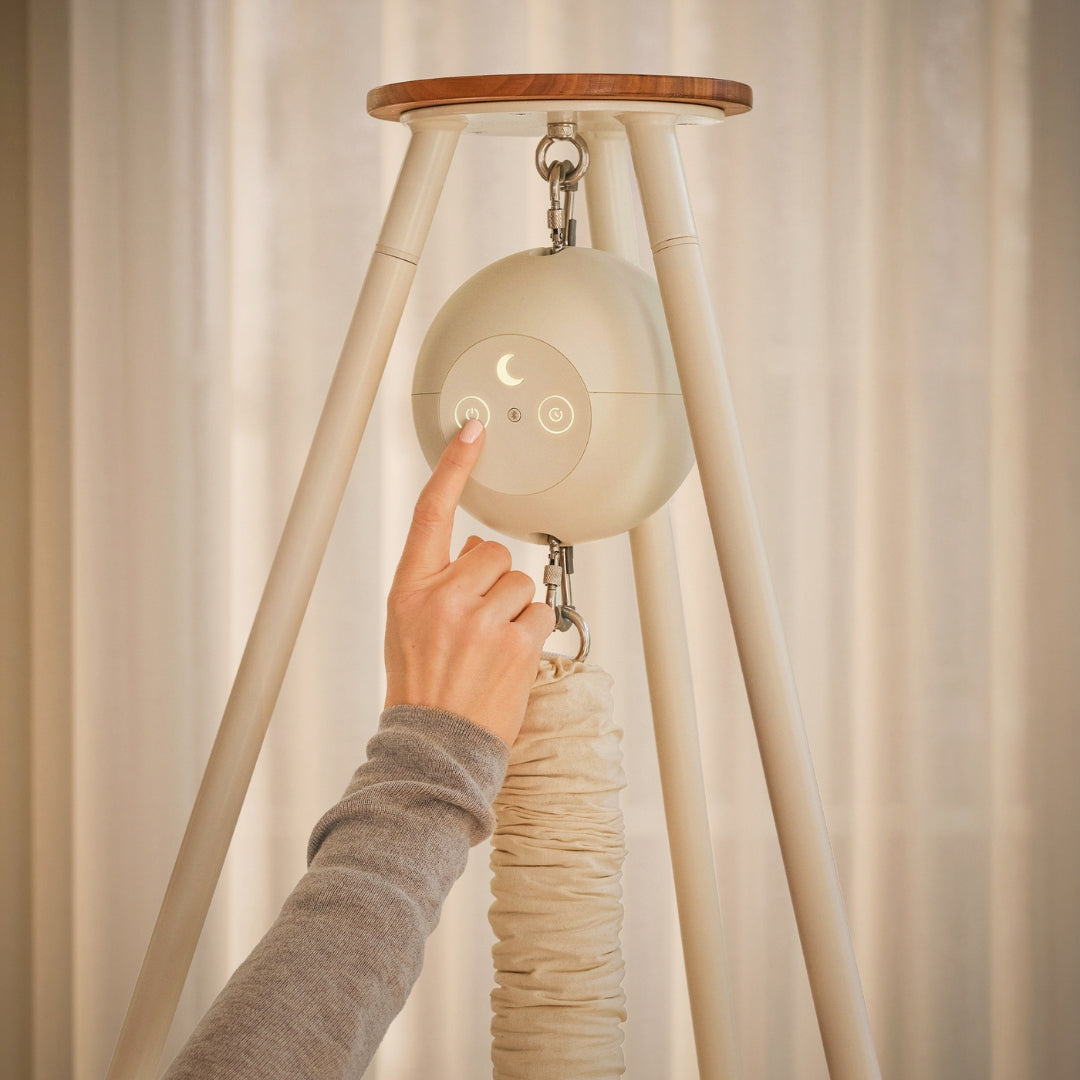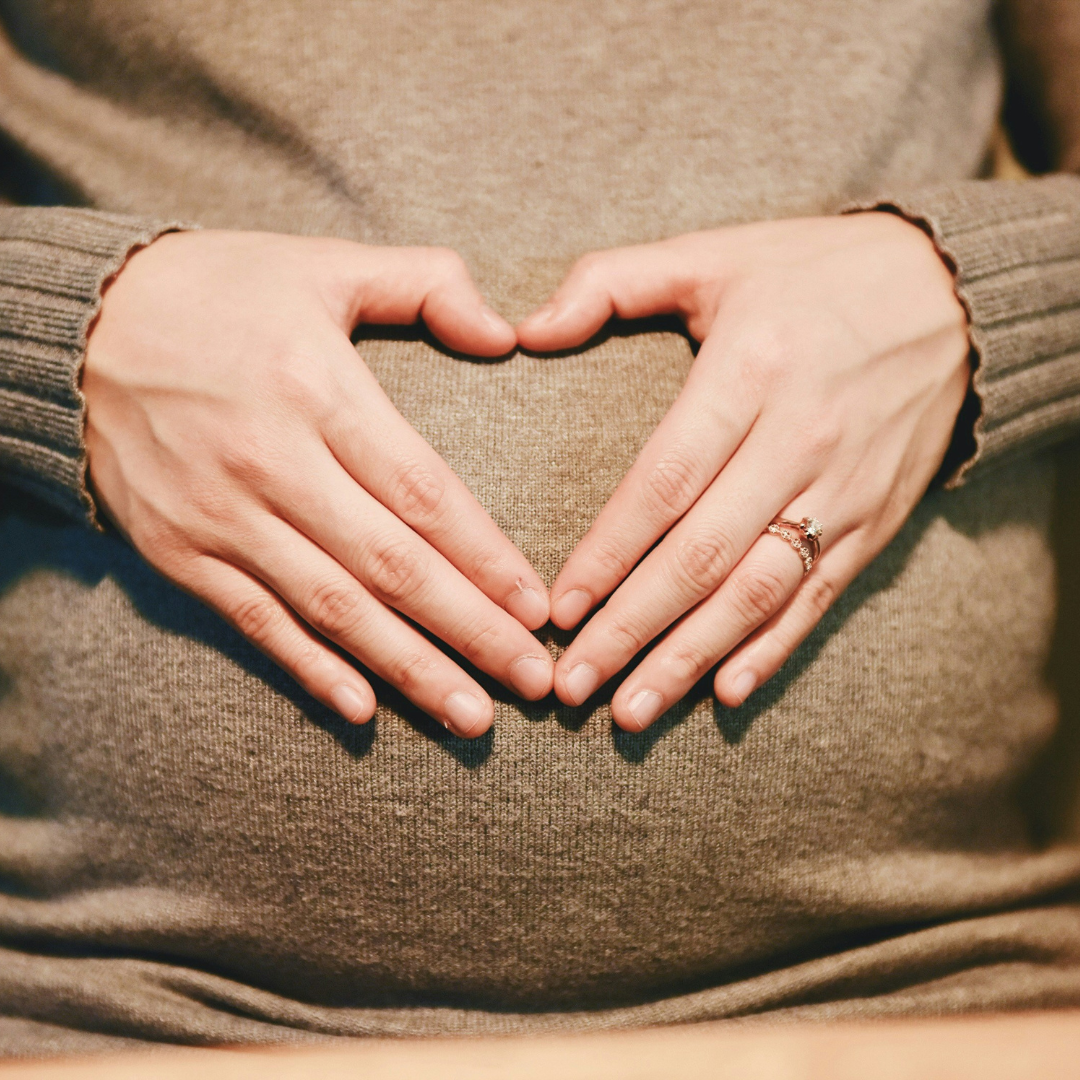


In the early days of pregnancy (sometimes even before you know you are pregnant) your body may begin to show subtle signs. If you are trying to conceive or simply wondering whether a shift in how you are feeling could mean something more, it is natural to start noticing all of these potential little changes.
Symptoms like breast tenderness, mild cramping, fatigue, or headaches can all be early indicators of pregnancy. But because many of these signs are also common before your period, it can be hard to tell the difference. And if you are trying to get pregnant, you might find yourself even more attuned to them.
Understanding what early pregnancy might feel like can help you recognise the signals your body is sending and bring a bit more clarity during the waiting period before taking a test.
In this article, we will walk through some of the most common early pregnancy symptoms, explain when they might appear, and offer guidance on how to navigate this time. Whether you are actively trying or just curious, this guide is here to support you through the first signs of what might be ahead.
What causes early pregnancy symptoms?
Many early pregnancy symptoms are linked to hormonal shifts that start happening very soon after conception. The hormone hCG begins to rise rapidly once a fertilised egg implants in the uterus. Progesterone and estrogen also increase to support your growing pregnancy. Understanding that there’s a real biological reason behind what you’re feeling can help make those early changes feel a bit less mysterious.
When do early pregnancy symptoms start?
Pregnancy symptoms, whether considered “early” or not, can begin at different times for different people. While some women may experience many or even all common pregnancy symptoms very early on, others might notice very few, or none at all, until several weeks into their pregnancy, if ever.
When it comes to early symptoms, some women may start to experience signs as soon as one to two weeks after conception, which is often before a missed period. However, this timing usually overlaps with the second half of the menstrual cycle. Because of this, it can be challenging to determine whether the changes you’re noticing are related to pregnancy or simply premenstrual symptoms, which can feel quite similar.
Every person’s body responds differently, so the presence or absence of early symptoms does not necessarily indicate anything about the health or progress of a pregnancy. Paying attention to these early signals can help, but the most reliable confirmation still comes from a pregnancy test after a missed period.
Early signs of pregnancy before a missed period
-
Spotting, or light vaginal bleeding: Also sometimes called “implantation bleeding.” If we boil that down, it means that after fertilization, the embryo implants into the uterine wall, resulting in spotting or vaginal bleeding during pregnancy without abdominal pain or cramping. This can happen as soon as six to 12 days after conception. This bleeding is usually medium pink or light brown and is rarely “period-red.” It’s also not continuous, lasting a few hours to a few days.
-
Smell sensitivity: A heightened sense of smell is an early pregnancy symptom that makes previously mild odors strong and unappealing. This is due to hormonal changes.Ssome pregnant women may experience dizziness, nausea, and vomiting when they smell certain odors, such as food, perfume, cigarettes or the smell of certain household products.
-
Fatigue: Feeling unusually tired is one of the most common early pregnancy symptoms. While it can be difficult to distinguish from everyday tiredness — especially if you often feel fatigued — an increase in exhaustion that’s out of the ordinary may be worth noting.
-
Cramping: Mild cramping can begin around one to two weeks after conception. It may feel similar to menstrual cramps and usually occurs in the lower abdomen. These sensations are often linked to hormonal changes and the early adjustments your body makes to support pregnancy. Typically, any cramping lasts just a few days.
-
Moodiness: The increase of hormones in your body in early pregnancy can make you unusually emotional or confused about your feelings, which can also often cause mood swings.
-
Nasal congestion: You might notice your nose start to swell, dry out and bleed easily. This might cause you to have a stuffy or runny nose.
More “classic” signs after missing a period
-
Missed period: The number one tell tale sign and one of the very first symptoms of pregnancy for those who become pregnant. However, missed periods can also be caused by stress, hormonal imbalances, extreme dieting, PMS syndrome, or excessive exercise. Individuals suspecting pregnancy during this early stage should undergo a pregnancy test to detect the presence of the hCG hormone and confirm the pregnancy.
-
Morning sickness: one of the first signs and symptoms of pregnancy, usually occurring between 2 and 8 weeks after conception, and is a very common symptom for the majority of pregnant women. Morning sickness manifests as nausea, vomiting, and loss of appetite, as well as headaches and dizziness, and can occur at any time of the day.
-
Increased urination: You may find yourself needing to use the bathroom more frequently than usual. This happens because pregnancy increases your blood volume, which means your kidneys are working harder to filter and produce extra fluid that ends up in your bladder.
-
Breast changes: Hormonal shifts in early pregnancy can lead to breast tenderness, swelling, and sensitivity. You might also notice changes in the areolas, such as darkening, enlargement, or the appearance of small bumps.
-
Bloating: Hormonal changes in early pregnancy can slow down digestion and cause bloating, much like what some people experience before their period
-
Food aversions: Your extra-sensitive nose might have you turning away from previously loved foods.
How long do early pregnancy symptoms last?
Some symptoms may ease after the first trimester, such as morning sickness or mood swings. Others, like breast tenderness or frequent urination, may continue throughout pregnancy. It is also completely normal for symptoms to come and go, and this does not necessarily mean anything is wrong. Every pregnancy is different, and symptoms can change as your body adjusts.
It is easy to overthink and question what you are feeling, especially if it is your first pregnancy. That is why we always recommend checking in with your midwife or doctor if you feel unsure or concerned at any stage.
Other signs of pregnancy
Again, this is not something that should lead you to jump to conclusions. These signs are not a checklist or confirmation but can be helpful to keep in mind if you are trying to conceive and suddenly start noticing them. Everyone’s experience is different, and many of these symptoms can have causes unrelated to pregnancy.
That said, some people do report a few of the following changes:
-
Backache: Often linked to changes in posture and loosening of ligaments as the body adjusts.
-
Breathlessness: Can occur as your body starts to adapt to new physical demands.
-
Constipation: This is fairly common and may be related to hormones that slow digestion or pressure on the digestive system.
-
Haemorrhoids: Sometimes caused by constipation or increased pressure in the pelvic area.
-
Headaches: Can come and go for various reasons, including hormonal shifts.
-
Heartburn and indigestion: These are often linked to hormonal changes affecting slower digestion.
-
Itchy skin: Mild itching can happen as the skin stretches or reacts to hormonal changes.
-
Leg cramps: Also known as “charley horses”, they commonly occur at night and are experienced by many during pregnancy.
-
Tingling and numbness in your hands: Can result from fluid retention or changes in circulation.
-
Vaginal discharge: An increase in discharge can be normal as your body adjusts.
-
Vaginitis: Some people may notice irritation or imbalance during pregnancy.
-
Varicose veins and leg swelling: These can develop due to increased blood volume and pressure on the veins, especially in the legs.
-
Excess saliva: Some people experience more saliva than usual in early pregnancy.
As always, if anything feels unusual, uncomfortable, or concerning, it's a good idea to check in with a healthcare professional for personalised guidance. But try not to worry, many of these signs are common and vary widely from person to person.
Are you really pregnant?
Many early signs and symptoms of pregnancy aren’t unique and can overlap with many other everyday changes. A headache might be from stress, not enough sleep, or skipping your usual coffee. Feeling more tired than usual or noticing changes in your mood might just mean your period is on its way. And on the other hand, it’s entirely possible to be pregnant without feeling any symptoms at all.
It can be confusing, especially if you're actively trying to conceive. But if you’ve missed a period and notice some of the signs mentioned above, it’s a good idea to take a home pregnancy test or reach out to your healthcare provider. If the test is positive, booking a check-up is the next step to confirm your pregnancy and begin prenatal care.
What to do if you're still not sure
If you're noticing symptoms but aren't quite sure what they mean, here are a few helpful next steps:
-
Track your cycle and any changes in your body
-
Take a home pregnancy test after a missed period
-
Talk to your GP or healthcare provider
-
Share your thoughts with a trusted partner or friend
When can I take a home pregnancy test?
You can take a pregnancy test from the day you expect your period. That said, for the most reliable results, it’s often better to wait about a week after your missed period. While some tests advertise early detection, testing too soon may lead to a false negative which means the test might say you're not pregnant even if you are.
If you prefer a more precise answer earlier on, your healthcare provider can do a blood test that may detect pregnancy around one week before your expected period.
Tips for self-care during the early weeks
Whether you’ve just found out you’re pregnant or are still in that uncertain “maybe” stage, a little extra care can go a long way. Try:
-
Getting enough rest when you feel tired
-
Staying hydrated
-
Eating small, frequent meals if you're feeling nauseous
-
Avoiding strong smells that trigger nausea
-
Taking time to yourself to process your emotions
Self-care doesn’t have to be complicated, it’s about tuning into your body and responding with gentleness.
A note from Moonboon
Pregnancy can be a mix of excitement, nerves, and a hundred questions, especially in the very beginning (or before you even know it's the beginning!) Every pregnancy is different, and there’s no one-size-fits-all experience. For some, symptoms like a missed period, nausea, sore breasts, or fatigue show up early. Others might not feel much at all for a while.
If you think you might be pregnant, a home test is a great first step. Most are easy to use, available at your local pharmacy or grocery store, and accurate when used correctly.
Always remember, if you’re unsure, your healthcare provider is the best person to speak to. If it turns out you are pregnant, we’re here to walk with you. You can explore what to expect each week in our week-by-week pregnancy guide.
This time can feel like a lot, physically and emotionally, so try to take it one day at a time. Trust your body. It’s already doing something incredible.


































